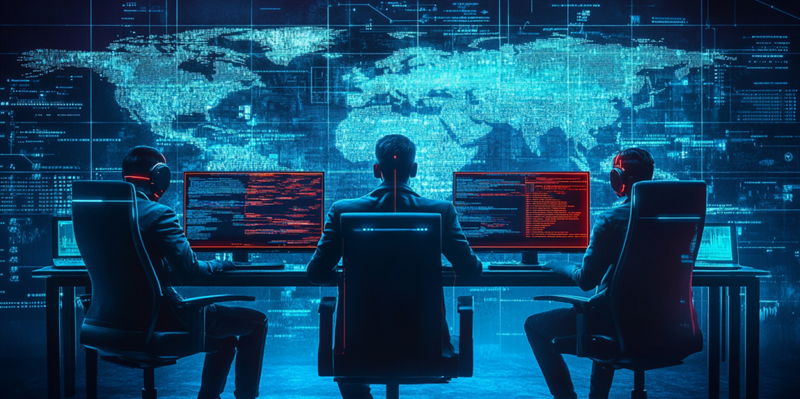Recent developments have highlighted the ongoing struggle between United States government agencies and Russian actors attempting to influence and disrupt the legitimacy of the US Presidential Elections. Various intelligence bodies, including the Office of the Director of National Intelligence (ODNI), the Federal Bureau of Investigation (FBI), and the Cybersecurity and Infrastructure Security Agency (CISA), have come forward with accusations against Russian operatives fabricating a controversial video. This video allegedly shows Haitians illegally voting in several Georgia counties, adding to the already tense political atmosphere.
Disinformation Tactics and Verification Efforts
Fabrication and Circulation of the Video
The contentious video, which has gained considerable traction on social media platforms such as X, depicts two men falsely claiming to be Haitian and in possession of multiple Georgia IDs. This video is part of a broader Kremlin effort to undermine the credibility of the US election process and instigate discord among American citizens. The Intelligence Community (IC) has identified this video as a misleading fabrication similar to previous disinformation tactics used by Russian influence actors. The video’s authenticity has been refuted by multiple sources, including the Georgia Secretary of State Brad Raffensperger, who has publicly denounced the video’s claims as categorically false and unfounded.
Raffensperger has urged social media platforms to remove the misleading content in cooperation with state and federal efforts to trace the video’s origin. The verification team at BBC has meticulously analyzed the video, discovering clear indicators of fabrication, such as false addresses and the use of stock photos. These findings validate the joint statement issued by the ODNI, FBI, and CISA, stressing the importance of distinguishing between genuine information and orchestrated disinformation campaigns that aim to mislead the public.
The Bigger Picture of Electoral Interference
As the US approaches Election Day on November 5, a large portion of the electorate has already participated in voting through postal or early voting methods. However, the appearance of such disinformation efforts raises concerns about the integrity of the election. The joint intelligence statement not only addresses this particular video but also highlights another deceptive video produced by Russian actors. This second video falsely accuses individuals linked to the Democratic presidential ticket of accepting bribes, further attempting to tarnish their reputation.
This activity is not an isolated incident; rather, it forms part of a larger pattern observed by US government agencies. These agencies have reported a surge in influence activities from nation-state actors, particularly from Russia and Iran, aiming to disrupt the upcoming 2024 Presidential Election. For example, in recent months, the Justice Department charged two employees of the Russian state media group RT for their involvement in financing disinformation campaigns within the United States. These incidents underscore the persistent threat posed by external actors seeking to influence and undermine the democratic process.
Broader Impact and Measures for Safeguarding Elections
Challenges from Cyber Influence Operations
In addition to fabricating misleading videos, nation-state actors have engaged in cyber influence operations aimed at creating chaos and mistrust in the US electoral system. Intelligence agencies have documented attempts by malicious actors to spread false claims about breaches in US voter registration databases. These attempts often leverage publicly available information to lend unwarranted credibility to their assertions, intending to erode public confidence in the electoral process.
For instance, in August, Microsoft exposed Iranian cyber operations specifically designed to interfere with the US Presidential Election, showcasing the global nature of these interference efforts. These cyber influence operations are frequently sophisticated, employing state-of-the-art technology and strategies to evade detection and exploit vulnerabilities within the electoral system. Such concerted cyber campaigns pose a substantial threat, requiring robust countermeasures and heightened surveillance.
Importance of Cybersecurity and Inter-agency Cooperation
Recent events have once again underscored the persistent battle between United States government agencies and Russian entities trying to meddle with the legitimacy of the US Presidential Elections. Multiple intelligence agencies, including the Office of the Director of National Intelligence (ODNI), the Federal Bureau of Investigation (FBI), and the Cybersecurity and Infrastructure Security Agency (CISA), have made allegations against Russian operatives. These operatives are accused of creating a fabricated video that ostensibly shows Haitians casting illegal votes in various counties throughout Georgia. This video, designed to stir controversy, has added even more strain to the already volatile political climate. The coordinated effort by these intelligence agencies aims to counteract the disinformation and ensure the security and integrity of the election process. Their response highlights the critical importance of protecting democratic institutions from external interference, emphasizing the ongoing need for vigilance and resilience in the face of such attempts to undermine American democracy.

